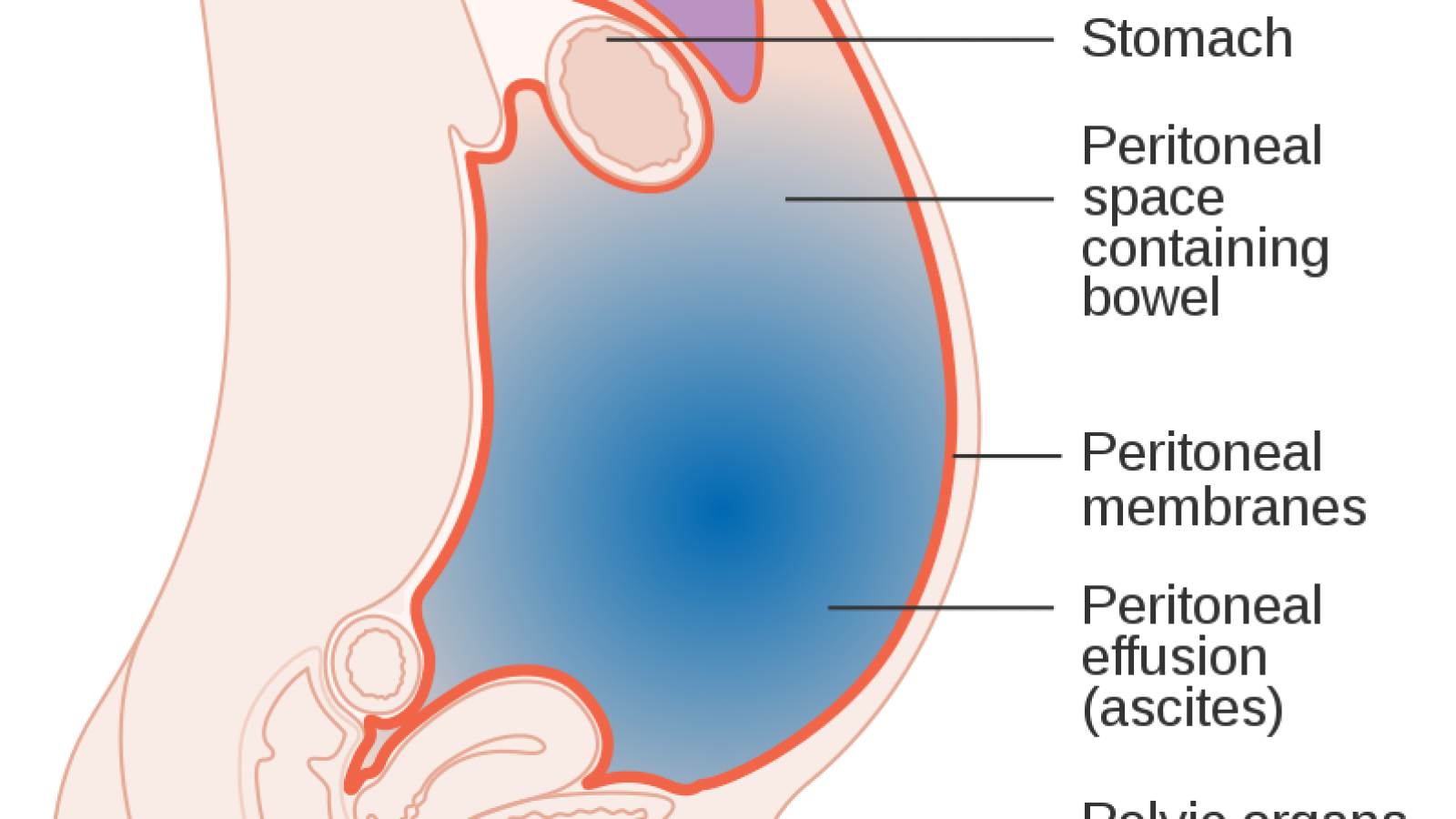Ascites (fluid build-up in the tummy)

What is it?
Ascites (“ah-site-ease”) is a build-up of fluid in the tummy area. This fluid causes the abdomen to become swollen and bloated. This can cause pain or other symptoms, as pressure increases in the area and on the organs in your tummy. Fluid can build up over a few weeks or more suddenly – in a few days.

Picture courtesy of CRUK / Wikimedia Commons
What causes it?
There is a fluid between the organs in your stomach and the wall of your abdomen (tummy), contained between 2 layers of tissue.
Sometimes the amount of fluid between the layers increases, which makes your tummy swell up. This can happen for a number of reasons with cancer. For example,
- Cancer cells in the lining of the tummy cause the fluid to build up.
- Cancer in the liver blocking the normal flow of the lymph system can lead to a build-up of fluid, as the lymphatic system normally removes excess fluid from the body.
- Cancer cells blocking the lymphatic system, causing fluid to build up.
What are the symptoms?
- Tummy feeling tight, or clothes feeling tighter
- Bloating – for example, your tummy may look like a pregnant woman’s
- Pain in your tummy or back
- Reduced appetite
- Indigestion
- Constipation
- Needing to pee often
- Feeling breathless
- Feeling tired or weak
What should I do if I have symptoms?
Tell your doctor if you have symptoms of ascites. They can do tests to find out the cause – for example, an ultrasound scan, blood test or taking a sample of fluid from your tummy using a needle.
How is it treated?
The doctor can remove the fluid with a long, hollow needle attached to a tube called a drain. You will have a local anaesthetic, so you shouldn’t feel any pain. The fluid will drain through the tube over a few hours or days, depending on the amount of fluid.

Picture courtesy of CRUK / Wikimedia Commons
This will relieve the problem, but you may have to have another drain if the fluid comes back again. If the fluid keeps coming back, your doctor may suggest a catheter (a flexible tube). This can be left in place to drain off the excess fluid, your medical team will show you how to look after this tube when at home and discuss any care that is needed.
You may also be given tablets (diuretics) to slow down the build-up of fluid.
For more information
Phone
1800 200 700



